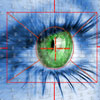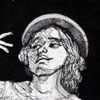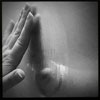Revolution – An Example of Past Life Regeneration
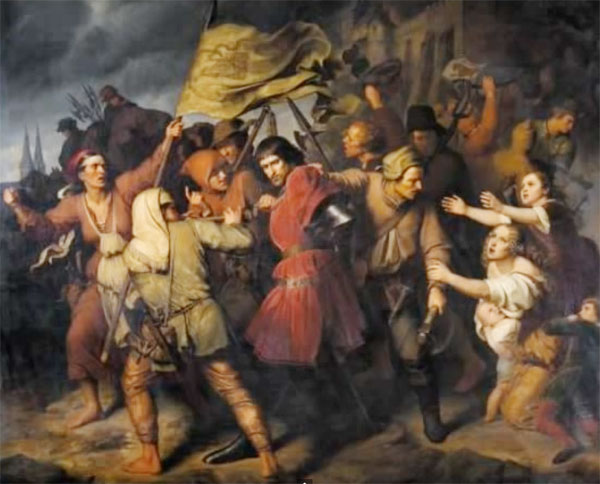 Excerpt from Multi-dimensional Man by Jurgen Ziewe
Excerpt from Multi-dimensional Man by Jurgen Ziewe
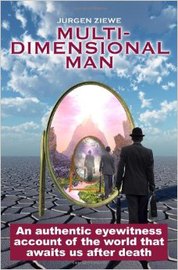 “This had been an extraordinary time. I had been on work experience as a therapist in a psychiatric hospital. I was introduced to my supervisor, a lady in her early forties, and the moment we were introduced I felt her icy hostility towards me. I found out later that her parents had been murdered in a concentration camp, and I figured that my being German was the cause of her reaction. By my mere presence I imagined I had brought to the surface a lifetime of hurt and resentment. Her hostility was open and blatant. Everybody on the staff was aware of it. It manifested itself in malicious behaviour: she sabotaged my work and undermined my sessions with my patients. As hard as I tried to build a dialogue with her it was impossible. As a consequence I was left feeling depressed and depleted when returning home from work.
“This had been an extraordinary time. I had been on work experience as a therapist in a psychiatric hospital. I was introduced to my supervisor, a lady in her early forties, and the moment we were introduced I felt her icy hostility towards me. I found out later that her parents had been murdered in a concentration camp, and I figured that my being German was the cause of her reaction. By my mere presence I imagined I had brought to the surface a lifetime of hurt and resentment. Her hostility was open and blatant. Everybody on the staff was aware of it. It manifested itself in malicious behaviour: she sabotaged my work and undermined my sessions with my patients. As hard as I tried to build a dialogue with her it was impossible. As a consequence I was left feeling depressed and depleted when returning home from work.
Then, one morning, I became suddenly aware in the most dramatic way possible of the real reason for her enmity.
I’d had a very bad night with long spells of sleeplessness while trying to figure out how to appease my hostile supervisor, and finally I gave up and decided to meditate. It was 4:30 am.
After about an hour-and-a-half my focus went and tiredness sabotaged my concentration and I fell asleep.
Almost as soon as I drifted off I was jolted into waking consciousness (lucid dreaming). I found myself walking along a squelchy path with a group of twenty or thirty people. The excitement that I was fully awake in another dimension was muted by the fact that it was raining and I felt the clammy chill of wet clothes on my skin.
This was most unusual. This was a physical experience. I looked at the broadly knitted pattern of my woolen coat, which went down to my knees. My legs were covered with handmade leather boots dragging me along the soggy road. I felt uncomfortable, ill at ease. I was carrying a sword in my belt with an open blade. I felt sick with depression.
The most curious sensation was that there were two of me, the observer and the observed. There was the me studying the scene and noting down every detail, like the colour of my boots, the overcoat like a short blanket covering my shoulders and held together by a bold brass brooch; the me peering out from underneath my hat into the wet landscape, observing a troupe of people marching in loose formation along the sodden mud path in driving rain. Then there was the other me, experiencing the wet and the wind in my face. I carried the images of slaughter with me. I myself had slain a man in a castle we had raided. I could still see the smoke from the blaze.
It was just getting light. I don’t know who the person was, only that he confronted us with fear in his face. Without a thought I sunk my blade into him. Now I felt sick.
The Lord of the Manor did not die an easy death. He was humiliated. I stood apart just watching.
Part of me was sickened by what I witnessed. His clothes were ripped from him and he was thrown a sack to cover himself, to feel how the poor people dressed. I was the only one who could not join in and it was I he stared at – not pleading for his life, not begging, just full of hatred. Whatever anyone did, he looked only at me. And his eyes were telling me you will burn in hell for this.
Not everybody was killed. The Lord’s wife and daughters were spared, but they were beaten and humiliated and then driven from their palace. The few things they packed were taken away from them. They tried to organise a couple of horses and a cart but the horses had been killed by one of our group. The only thing they were left with were the clothes they wore. Then the place was burned down.
The servants were spared. “You are free,” one of our group shouted, but the servants weren’t happy about it. They were furious, cursing and swearing at us. Even when we organised a cart with loot from the house and insisted that this was their payment for their years as slaves, they were not happy.
I tried to deal with my discomfort by thinking about all the injustices and hardships my people had suffered over the years – all the cruelty and exploitation. I recalled our children starving while these people lived in luxury. I thought of our humiliation and the senseless disregard these rich people held for our lives.
I hated the Lord. I hated him for making me see that however just our cause felt, I did not feel right about it. When I took up arms and joined the peasants I did so because I felt anger at the injustice and exploitation. I was a young man with a respectable trade in my village. I had no hardship and yet I was carried along by the emotion and the cause to restore justice.
When the Lord lay naked in his own blood with a sack thrown over him, he stared at me still, even though his life had gone. His hate-filled eyes still haunted me as our group stomped back through the mud.
The other part of me, the observer, recognised the Lord of the Manor instantly: it was my supervisor at the hospital. They each had the same eyes with the same presence behind them.
With this I sat up in my bed. There was hardly a break in consciousness. I felt as if I had just come in from the rain, from the muddy path, with the wet heavy clothes still clinging to my body. I felt sick. I felt guilty for allowing myself to be dragged into this madness and yet I felt I had had little choice.
After recovering from my ordeal, I figured out what had happened. I remembered at school that I had had an inexplicable fascination with a period of 16th century German history: the “Bauernkrieg”, the Peasants Revolt. I had felt great sympathy for their cause – for their leader, Thomas Munzer, and for the thousands who were put to death after the revolt failed. And now I had seen it at first-hand: the brutal reality in all its detail, right down to the knitting pattern of the woollen coat and the brooch on my shoulder, and the enemy I had brought with me over four centuries.”
Posted in Past Life Therapywith comments disabled.


